
Eating too much of these 5 vegetables is like "poisoning" your liver, and the first one is on almost every family's dinner table.
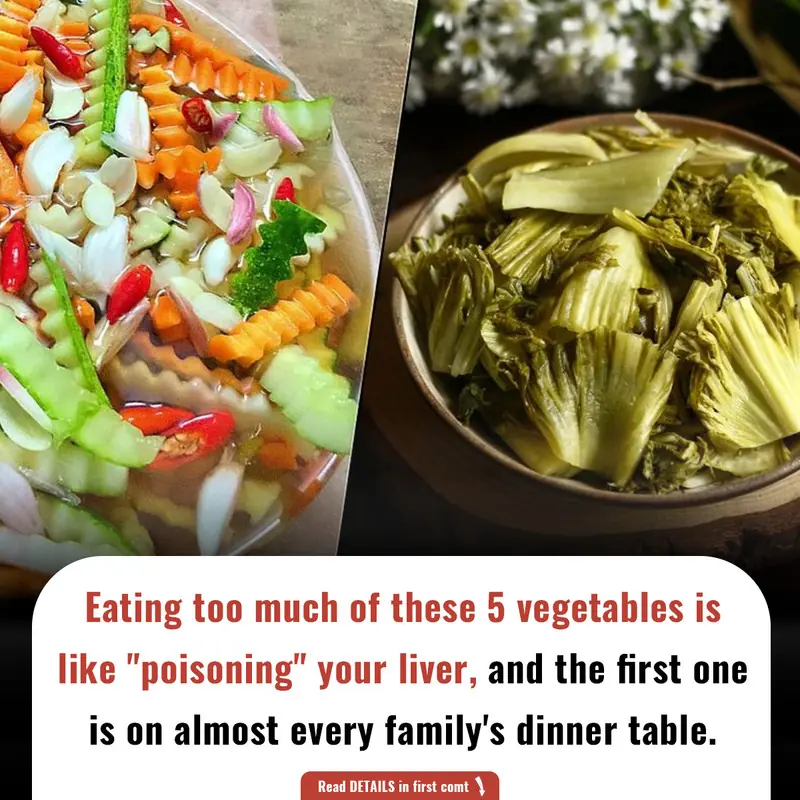
-
Pickled Vegetables (e.g., pickled cucumbers, pickled eggplants...)
Pickled vegetables are a common and beloved dish in many Vietnamese households. However, overconsumption or using improperly preserved pickles can have severe repercussions for liver health.The reason for this is that during the pickling process, especially when the brine is not prepared correctly, nitrates in vegetables can be converted into nitrites. When nitrites combine with amino acids in the body, they form nitrosamines, a compound known for its cancer-causing potential, particularly for liver and digestive system cancers.
According to the U.S. National Cancer Institute, nitrosamines are a group of potent carcinogens found in improperly processed or fermented foods.
Furthermore, pickled vegetables tend to be high in salt. A diet high in salt can not only strain the kidneys but also indirectly affect liver function.
Recommendation: Opt for pickled vegetables that have a light yellow color and a balanced acidity level, and avoid consuming them in large quantities. It's best to make them at home to ensure hygiene.
-
Damaged or Spoiled Vegetables
Some people, in an effort to save food, continue to use vegetables that are bruised or starting to rot, simply cutting away the damaged portions. However, this is a serious mistake.Damaged vegetables are more likely to produce toxins. When plant cells are broken, they create an environment conducive to bacteria and mold growth. Certain molds can generate mycotoxins, such as aflatoxins, which are among the most potent liver toxins.
The World Health Organization (WHO) warns that aflatoxins are highly toxic and can cause significant liver damage, increasing the risk of liver cancer.
Even if the damaged areas are removed, toxins and bacteria can spread to other parts of the vegetable that are not visibly affected. Consuming such vegetables forces the liver to work harder to detoxify the body, which may cause long-term liver damage.
Recommendation: Never eat vegetables that are damaged, moldy, or rotten. "Saving" food in this case can be detrimental to your health.
-
Sprouted Potatoes
Sprouted potatoes are a common sight, and many people simply remove the sprouts and continue to use the potato. However, sprouted potatoes can pose a risk to health.When potatoes sprout or turn green, they produce solanine, a toxic alkaloid. Solanine is most concentrated in the sprouts, the green skin, and near the sprouting eyes. According to the U.S. Food and Drug Administration (FDA), consuming potatoes with high solanine levels can cause symptoms of poisoning such as nausea, diarrhea, stomach pain, headaches, and, in severe cases, neurological and liver damage.
Although the liver has detoxification abilities, regular exposure to solanine, even in small doses, can put stress on the liver and potentially cause long-term harm.
Recommendation: It's safest to discard sprouted or green potatoes. If only a few small sprouts are present, remove all the sprouting eyes and green areas, peel the potatoes thoroughly, and soak them in water before cooking. However, the safest option is to avoid using them altogether.
-
Over-Soaked Wood Ear Mushrooms
Dry wood ear mushrooms are a convenient ingredient, but if they are soaked for too long or left overnight, they can become a health hazard.When wood ear mushrooms are soaked for an extended period, especially in warm temperatures, the bacterium Pseudomonas cocovenenans can grow and produce bongkrekic acid – a highly potent toxin. This toxin can cause severe damage to various organs, including the liver, kidneys, and heart, and in some cases, can even lead to death.
There have been reports of food poisoning due to bongkrekic acid from improperly soaked wood ear mushrooms in various countries, with a high fatality rate. Bongkrekic acid is heat-resistant and is not destroyed by boiling at high temperatures.
Recommendation: Only soak wood ear mushrooms for the necessary time (1-2 hours) and cook them immediately after soaking. Never soak them overnight or in large quantities for storage.
-
Unripe Tomatoes
Green or under-ripe tomatoes can contain toxins that may be harmful if consumed in large quantities. This is because unripe tomatoes contain significant amounts of tomatine, a glycoalkaloid similar to solanine found in green potatoes. While tomatine is less toxic than solanine, consuming large amounts can still cause symptoms such as nausea, vomiting, diarrhea, stomach pain, dizziness, and headaches.According to the U.S. National Library of Medicine, tomatine can be toxic when consumed in large quantities, especially from unripe tomatoes.
When the body absorbs tomatine, the liver must work to metabolize and eliminate the toxin, which can put pressure on the liver, especially for those with weakened liver function.
Recommendation: Only eat tomatoes that are fully ripe and red. Avoid consuming green or under-ripe tomatoes.
News in the same category

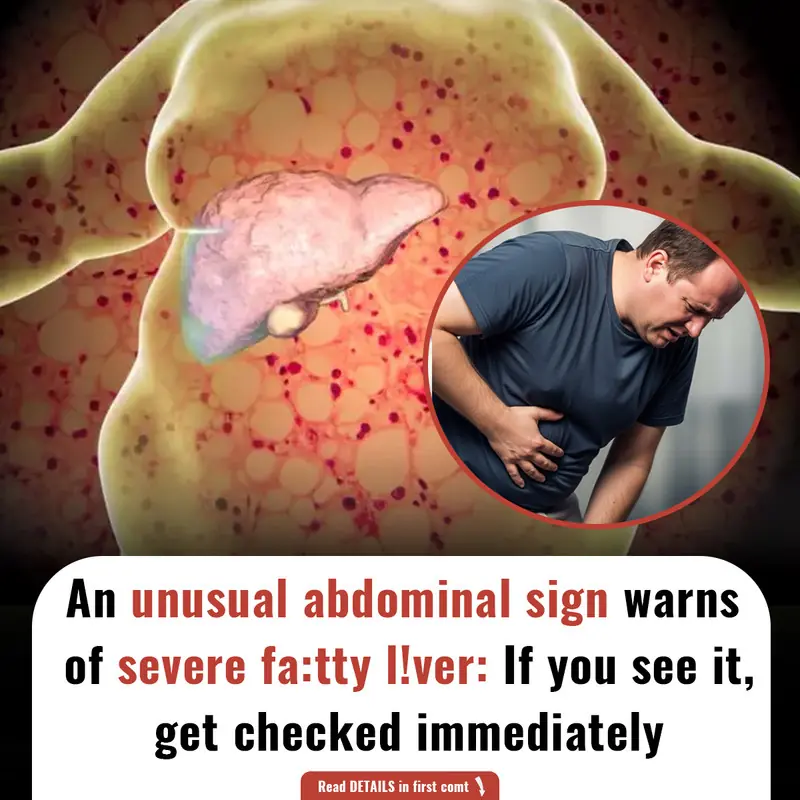
An unusual abdominal sign warns of severe fa:tty l!ver: If you see it, get checked immediately.
A gastroenterologist has suggested how to recognize fatty liver disease from an unusual sign in the abdomen.

A 33-year-old woman with metastatic canc3r is healthy 3 years later thanks to consistently doing one thing: "If I'd waited longer, things would be different."
Stunned after receiving the health check results, the 33-year-old woman still felt fortunate because she had detected the dangerous disease in time and still had a chance for treatment.

Don't buy these 3 kinds of oysters; even seafood shop owners won't let their families consume them.
If you want to buy good and clean oysters to eat, you must immediately avoid these types.
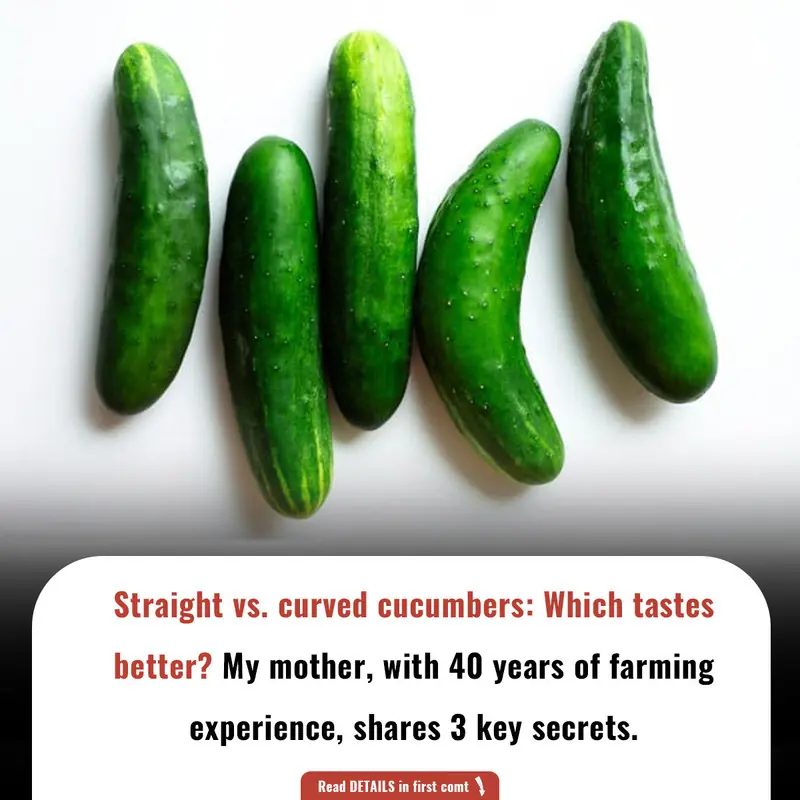
Straight vs. curved cucumbers: Which tastes better? My mother, with 40 years of farming experience, shares 3 key secrets.
The 'beautiful' things may have deceived you!

Beyond superstition: 5 items placed at your bedside secretly "drain" your health, leaving you more tired the more you sleep.
Green pots, plush bears, and small decorative items are all commonly seen objects in the bedrooms of many families. However, they can completely affect your health.

Is showering 2-3 times a day good in hot weather? Doctors warn certain bathing habits increase stroke risk.
In hot weather, many people have the habit of showering 2-3 times a day to cool down their bodies. However, is this habit good for health?

A 22-year-old man developed k!dney failure, fa:tty l!ver, and gout simultaneously, regretting drinking one type of beverage for four years.
A 22-year-old young man named Wang Yi, from Taiwan (China), went for a check-up and was unexpectedly diagnosed with kidney failure, fatty liver disease, and gout.

Woman suffers severe consequences after using bee stings to treat breast canc3r
Having breast cancer but not going to the hospital for treatment, instead opting for honeybee stings at home, the woman in Ho Chi Minh City has to bear the heavy consequences as the tumor complicates and metastasizes to many places.

Everyone knows canc3r can be hereditary, but which types of cancer have a higher risk?
Some hereditary cancers related to genetic mutations, such as breast cancer, ovarian cancer, and prostate cancer, can be managed and screened early thanks to genetic counseling.

Prolonged "minor ailments" could indicate canc3r, so beware of these 7 signs.
If you continuously experience headaches, loss of appetite, dry cough, and continuous weight loss... you need to see a doctor immediately as this could be a sign of cancer.
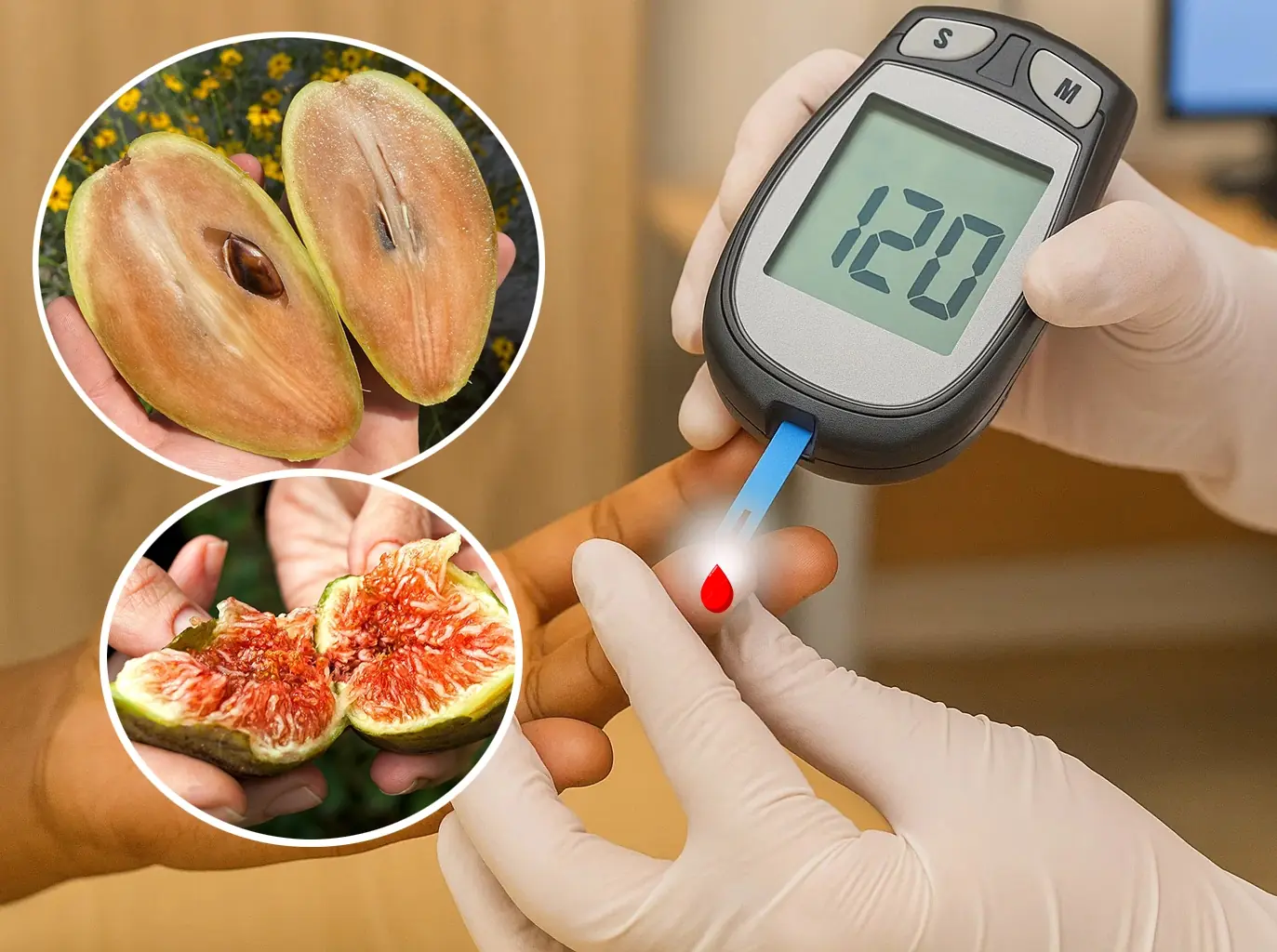
8 types of fruit that contain a lot of sugar should be limited to reduce the risk of diabetes and protect health
Fruit is good for you, but certain kinds contain a lot of sugar. Overeating can impact your health by raising blood sugar levels.

Hidden St0mach Canc3r Risk: How H. Pylori Infection Can Lead to Silent Canc3r and What You Need to Know
Learn about the link between Helicobacter pylori infection and stomach canc3r. Discover how this common food and waterborne bacteria could lead to silent canc3r and how early detection and treatment can help prevent it.

4 Visible Signs of Fatty Liver Dise@se on Your Face and How to Recognize Them
Discover the 4 common facial signs of fatty liver disease (NAFLD) like puffiness, skin discoloration, and acne. Learn how liver health affects your skin and when to seek medical help.

Vitamin D Can Reduce Tooth Decay by 50%, Study Finds: A Natural Solution to Dental Health
Discover how vitamin D can reduce tooth decay by 50%. Learn about its role in preventing dental caries, the link between vitamin D and oral health, and more in this detailed guide.
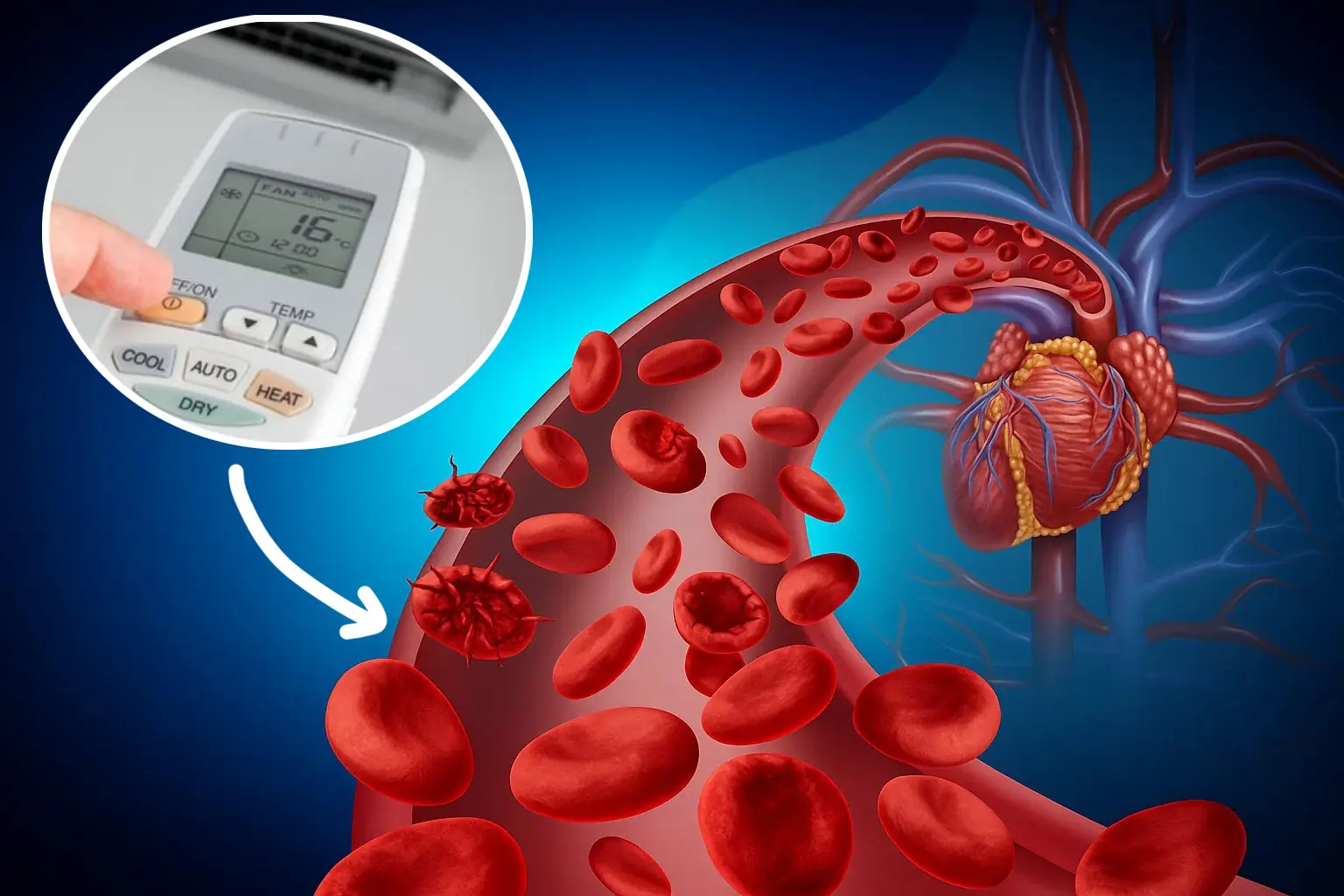
3 habits that "destroy blood vessels" faster than eating fatty meat: Many people still do them carelessly every summer
There are other causes of "damaging blood vessels" besides eating a lot of fatty meat and fatty foods. Three frequent summertime activities can also damage blood vessels, according to physicians.

Top 3 Seeds and 3 Drinks to Reduce Bloating, According to a Renowned Gastroenterologist
Discover the top seeds and drinks recommended by Dr. Saurabh Sethi to reduce bloating. Learn about sesame, flax, chia seeds, and drinks like ginger tea, kefir, and more.

There's a secret on b33r bottle caps: Target this point to open them easily by hand.
Many people have used their teeth, the edge of a table, or the armrest of a chair to open beer bottle caps – both dangerous and likely to cause damage. In fact, there is a special 'weak point' on beer bottle caps. Just aim correctly at this spot, and yo
News Post

When washing dishes, follow this method to remove all chemicals: Don't rush and risk "eating" detergent.

An unusual abdominal sign warns of severe fa:tty l!ver: If you see it, get checked immediately.
A gastroenterologist has suggested how to recognize fatty liver disease from an unusual sign in the abdomen.

A 33-year-old woman with metastatic canc3r is healthy 3 years later thanks to consistently doing one thing: "If I'd waited longer, things would be different."
Stunned after receiving the health check results, the 33-year-old woman still felt fortunate because she had detected the dangerous disease in time and still had a chance for treatment.

Don't buy these 3 kinds of oysters; even seafood shop owners won't let their families consume them.
If you want to buy good and clean oysters to eat, you must immediately avoid these types.

Straight vs. curved cucumbers: Which tastes better? My mother, with 40 years of farming experience, shares 3 key secrets.
The 'beautiful' things may have deceived you!

Beyond superstition: 5 items placed at your bedside secretly "drain" your health, leaving you more tired the more you sleep.
Green pots, plush bears, and small decorative items are all commonly seen objects in the bedrooms of many families. However, they can completely affect your health.

Is showering 2-3 times a day good in hot weather? Doctors warn certain bathing habits increase stroke risk.
In hot weather, many people have the habit of showering 2-3 times a day to cool down their bodies. However, is this habit good for health?

A 22-year-old man developed k!dney failure, fa:tty l!ver, and gout simultaneously, regretting drinking one type of beverage for four years.
A 22-year-old young man named Wang Yi, from Taiwan (China), went for a check-up and was unexpectedly diagnosed with kidney failure, fatty liver disease, and gout.
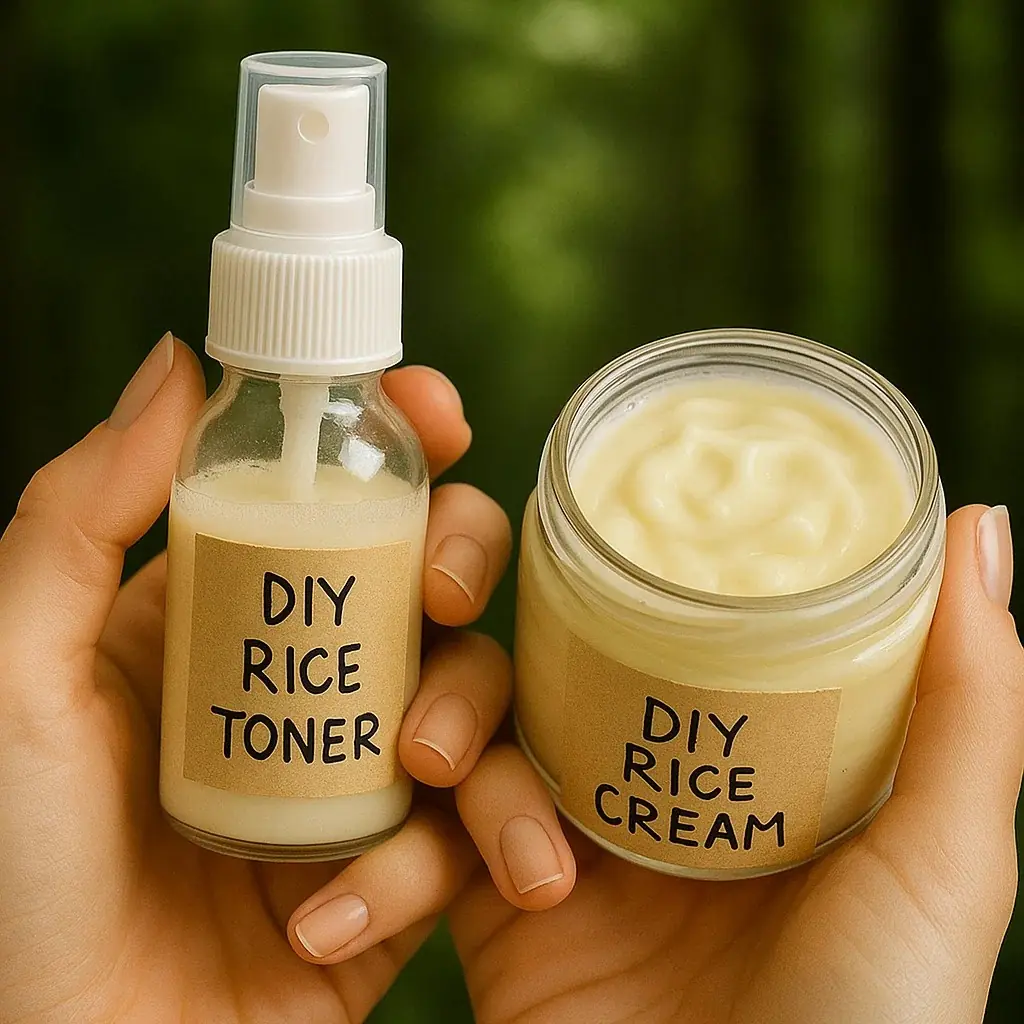
2-Step Korean-Inspired Glowup Routine: Achieve Radiant, Youthful Glass Skin At Home
The combination of rice, flaxseed, and other nourishing ingredients offers numerous benefits, from boosting hydration to fighting free radicals and improving skin texture. Follow this routine consistently, and you’ll be on your way to achieving the cove

The Legacy of Ruby Middleton Forsythe: A Lifelong Advocate for Education and Civil Rights
Discover the inspiring life of Ruby Middleton Forsythe, a dedicated educator who shaped the future of African-American children in South Carolina, teaching for over six decades despite adversity.

A 14-Year-Old’s Work Ethic: How One Young Girl’s Determination is Shaping Her Future
Discover the inspiring story of a 14-year-old girl who took the initiative to get a job, worked hard, and is saving for her future. Learn how determination and responsibility are shaping her dream to become a doctor.

Woman suffers severe consequences after using bee stings to treat breast canc3r
Having breast cancer but not going to the hospital for treatment, instead opting for honeybee stings at home, the woman in Ho Chi Minh City has to bear the heavy consequences as the tumor complicates and metastasizes to many places.

Mid-Flight Miracle: How a WestJet Flight Attendant Became a Baby-Whispering Hero
A family's challenging flight with a crying 4-month-old was transformed by the extraordinary kindness of a WestJet flight attendant. Discover this heartwarming story of empathy and going above and beyond in customer service.

Quiet Strength and Southern Grace: The Unseen Heroism of a Mother-in-Law Named Sharon
Discover the powerful story of Sharon, a mother-in-law whose quiet resilience and unwavering love carried her family through cancer, caregiving, and grace under pressure.

The Wisdom of Experience: How a $10 Withdrawal Taught a Bank Teller a Priceless Lesson
An elderly customer's request for a $10 withdrawal led to a viral moment of hidden wisdom. This compelling story reveals how patience and respect for elders can transform interactions, offering a powerful lesson in customer service and human dignity.

DIY Flaxseed Gel & Okra Hair Gel for Natural Hair Growth and Frizz-Free Shine
By incorporating these DIY treatments into your routine, you can achieve healthier, shinier, and fuller hair—without relying on harsh chemicals or expensive products.

Everyone knows canc3r can be hereditary, but which types of cancer have a higher risk?
Some hereditary cancers related to genetic mutations, such as breast cancer, ovarian cancer, and prostate cancer, can be managed and screened early thanks to genetic counseling.

Katherine Swynford: From Mistress to Duchess and the Legacy of Love and Power
Discover the extraordinary life of Katherine Swynford, from a lady-in-waiting to a duchess, her deep love story with John of Gaunt, and the lasting impact of her children, the Beauforts, on English history.

Prolonged "minor ailments" could indicate canc3r, so beware of these 7 signs.
If you continuously experience headaches, loss of appetite, dry cough, and continuous weight loss... you need to see a doctor immediately as this could be a sign of cancer.